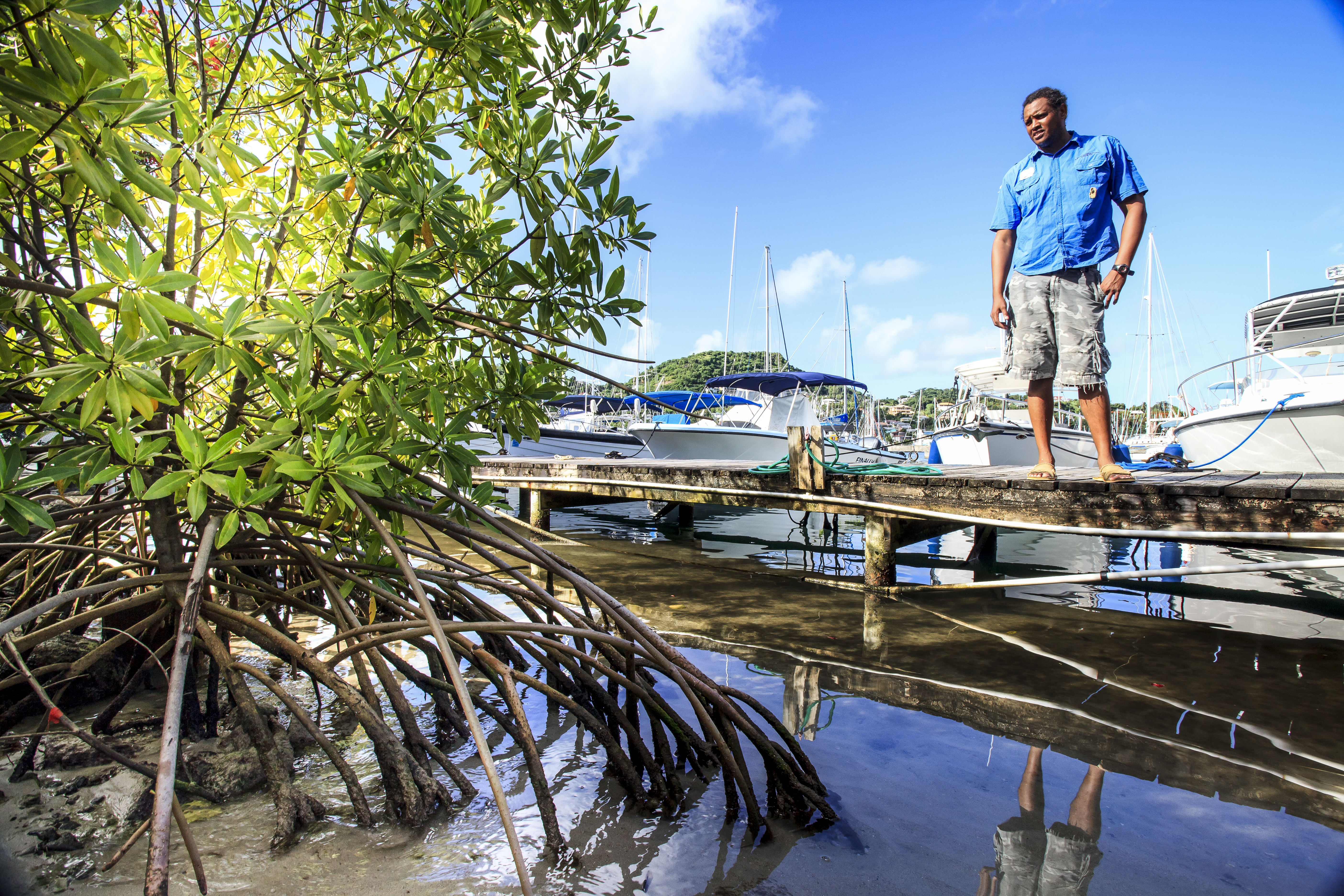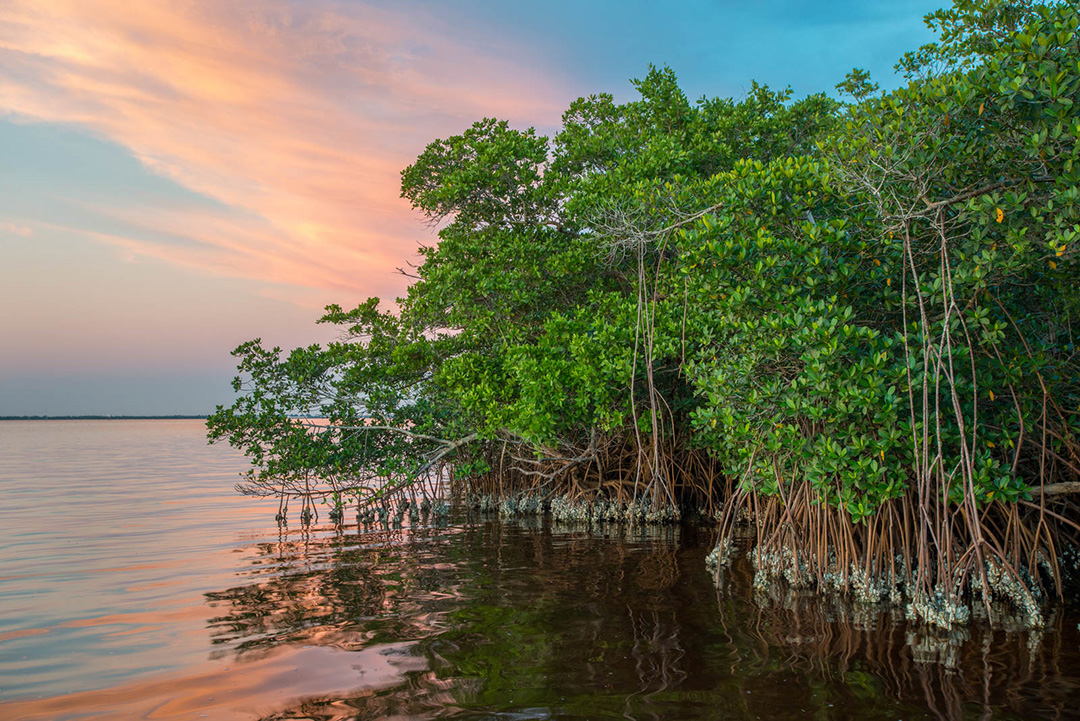Grenada and St Vincent and the Grenadines
Across the islands of the Eastern Caribbean, climate change already places intense pressure on human livelihoods and coastal and marine resources. Small islands states contribute very little to global climate change in terms of greenhouse gas emissions. Yet, these nations are the most vulnerable to the impacts from climate change due to their high coastal population densities, limited land space, geographic isolation, scarce freshwater supplies, and significant dependence on tourism and fisheries. These islands now face significant threats from increases in severe storm events, flooding, coastal erosion, drought, saltwater intrusion of coastal aquifers, and bleaching of coral reefs.
Island nations currently use a range of engineered solutions to respond to climate change, (e.g. constructing sea walls, levees, dams and river bank hardening). Although traditional infrastructure is sometimes necessary, it is costly and often destroys natural systems that island residents rely upon for basic services and quality of life, such as food, coastal protection, recreation, water security, and livelihoods.
In the Eastern Caribbean, we have worked with the government and people of Grenada and St. Vincent and the Grenadines for more than a decade, helping strengthen national parks and protected area systems and developing sustainable finance and human capacity for effective environmental management.


